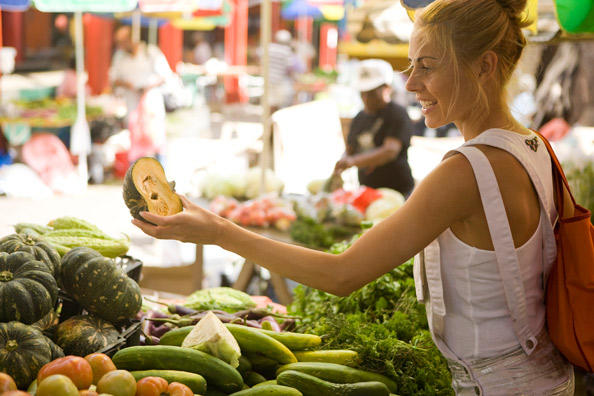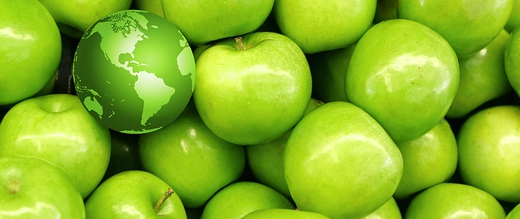The views expressed in our content reflect individual perspectives and do not represent the authoritative views of the Baha'i Faith.
Looking after one’s health is done with two intentions. Man may take good care of his body for the purpose of satisfying his personal wishes. Or, he may look after his health with the good intention of serving humanity and of living long enough to perform his duty toward mankind. The latter is most commendable. – Abdu’l-Baha, Star of the West, Vol. VIII, No. 18, p. 230.
This remarkable concept from the Baha’i teachings—that looking after your own health can serve humanity—has just begun to penetrate the world’s consciousness.
We know now that each person’s individual health affects all of us. When the people around us stay healthy, it saves resources and lives. People who neglect their health put undue burdens on the health care system with greater morbidity and mortality. Early illness and death deprive future generations of love and guidance from their elders. In just about every respect, taking care of your body by eating well and getting enough exercise contributes to a healthier, happier world.
One good way to start? Eat less meat. Eating less meat isn’t mandatory, at all, but the Baha’i writings encourage it, along with many other health and governmental agencies, including the U.N. Intergovernmental Panel on Climate Change. What can we do as individuals or in groups?
- First, consider joining the many people who participate in Meatless Monday. Meatless Mondays began in World War I and World War II, as a way to aid the war effort to support Allied troops. In 2003, the Johns Hopkins’ Bloomberg School of Public Health and 20 more major schools of public health initiated Meatless Monday again–as a response to the worsening health status of Americans, to reduce the incidence of preventable disease related to our high intake of saturated fat. In 2009, Meatless Monday gained global support due to the increasing impact of meat consumption on the environmental health of the planet. Individuals and institutions have taken up the challenge to cut out meat one day a week.
 Next, support local agriculture. Get to know some of the people who grow your food! Enjoy fruit, vegetables, honey, jam, bread, desserts, and more – all made where you live. Where do you find them? Try farmer’s markets; roadside fruit and vegetable stands; food cooperatives and natural food stores which carry local produce; look for local produce at public grocery stores; support CSA’s (community-supported agriculture). When you connect on a personal level with the people who grow your food, it forges bonds of friendship and unity–another way to promote the oneness of humanity.
Next, support local agriculture. Get to know some of the people who grow your food! Enjoy fruit, vegetables, honey, jam, bread, desserts, and more – all made where you live. Where do you find them? Try farmer’s markets; roadside fruit and vegetable stands; food cooperatives and natural food stores which carry local produce; look for local produce at public grocery stores; support CSA’s (community-supported agriculture). When you connect on a personal level with the people who grow your food, it forges bonds of friendship and unity–another way to promote the oneness of humanity.- Buy organic or no-spray (no pesticides or herbicides) produce when you can.
- If you drink coffee or tea or hot cocoa, buy “fair trade” when you can. What is fair trade? It’s a system of trading which promotes more equitable global trade, especially to sellers and producers in poorer areas, and also supports the environment. Fair trade items may sometimes be more expensive because they represent the actual value of these products, which means it simply pays farmers the money due them, with justice and equity.
- Decrease the amount of food you waste. Buy only what you can use. Depleting natural resources and discarding them is a worsening problem in our society. When our moms told us to clean our plates because people are starving, they were right! Be more aware of what you need, and limit what you waste.
- Consider other ways to help the environment. Need ideas? Buy cruelty-free (products which are not tested on animals) cosmetics, toothpaste, shaving cream, etc. Try natural cleaning products rather than chemical-based ones. Use recycled paper products. Reduce, reuse, recycle!
All of these individual and family-based actions can help our own health and assist humanity, as well. But our social, economic and environmental problems seem much more pressing and urgent than any of these actions can immediately address. Beyond individual actions, what can we do as a society, as a culture, as a world?
Please follow along as the next and final essay in this series as we explore that question.
You May Also Like
Comments

















(Baha'u'llah, The Summons of the Lord of Hosts, p. 80)
1.Physiologically speaking we don't have tearing instruments like the carnivores, our PH balance is also Alkaline in comparison to the carnivores, and our long intestines are about 12 times longer than our height in comparison to the carnivorous animals who's long intestines are only about 3 times their body length.
2. Spiritually speaking, 'Abdu'l-Baha says that killing animals for the purpose of eating them is against the ...compassion and pity of a human being.
3. Intellectually we have a free will so we can choose not to eat meat where a carnivorous animal goes by it's instincts to kill.
4. Socially we have to consider that even though we ourselves don't kill the animal, the people killing for us have a five time suicide and violence rate.
5. Environmentally speaking 18% of all green house gasses come from the animal industry and the if the land used for animals were use to fruits and grains we could feet 20 times more people.
6. From the perspective of health, I have not eaten met eggs or dairy products for more than a quarter century and I am healthy and look much younger than my real age.